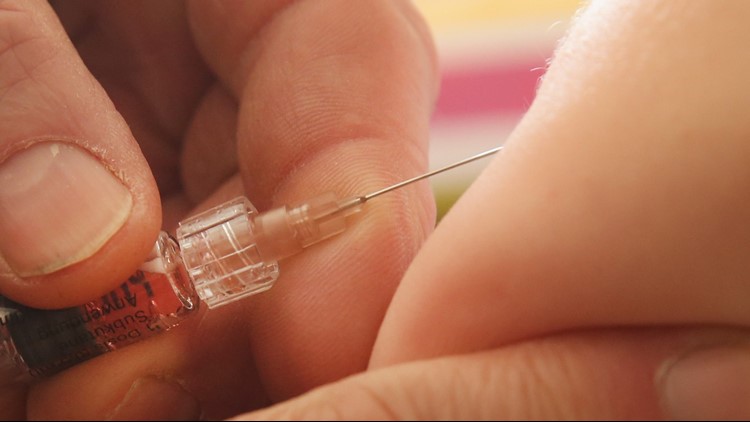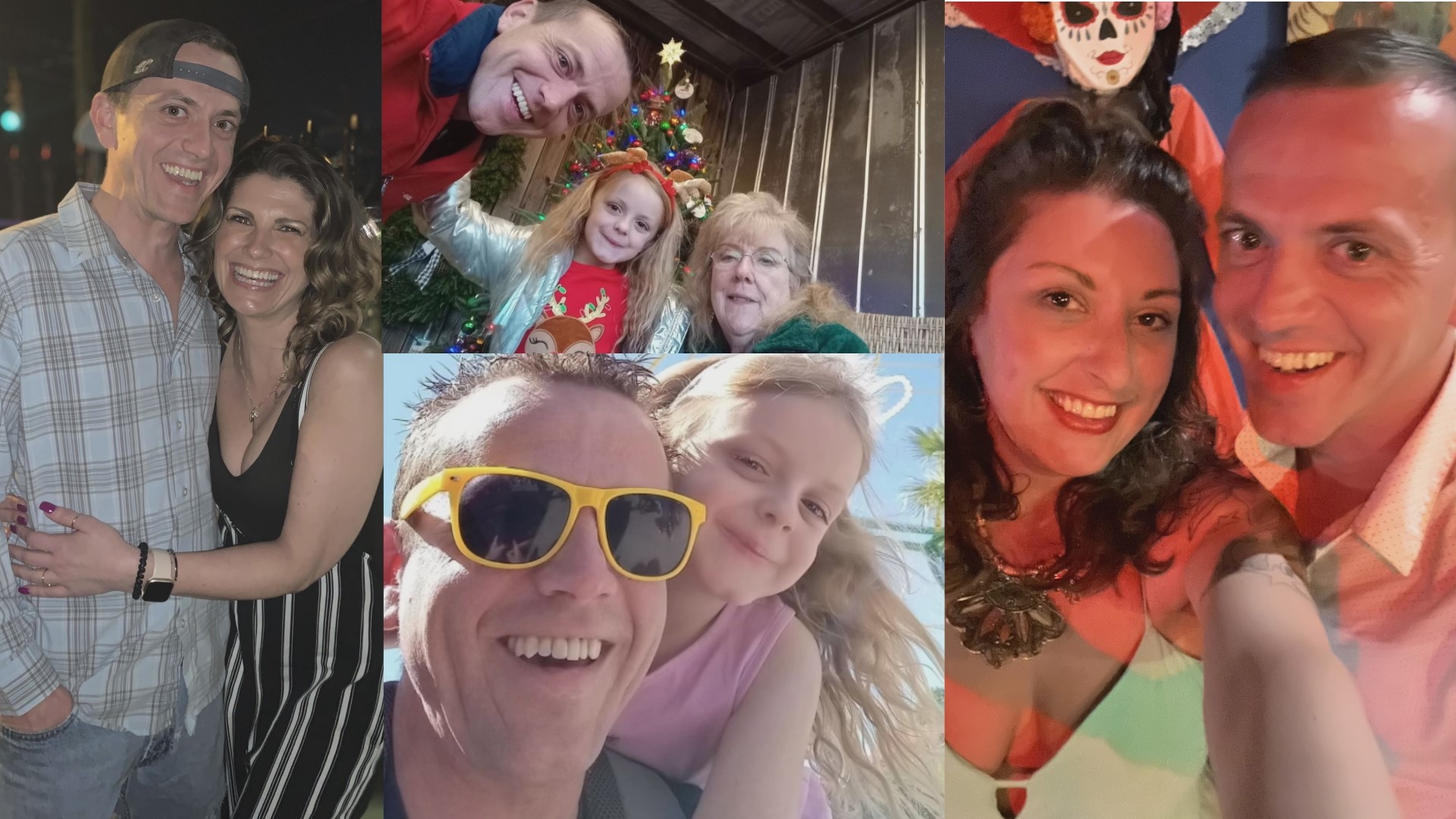ASHEVILLE – The rate at which Buncombe County kindergartners are skipping required vaccines has jumped again from what was an already high level, raising concerns by county officials that diseases like mumps, measles or whooping cough could one day sicken many county children
"What happens when we lack community immunity? Measles is what happens," Dr. Jennifer Mullendore, medical director at the county Health and Human Services Department told Buncombe commissioners Tuesday.
The percentage of kindergartners excused from an immunization because their parents claimed a religious exemption was 5.7 percent for the 2017-18 school year, she said, up from 4.9 percent the previous school year.
The rate statewide was 1.2 percent.
Buncombe County had the highest rate in North Carolina of religious exemptions last school year, according to a state report, and the county's rate is up dramatically over where it stood at the turn of the century.
North Carolina only allows children to skip vaccines because of medical necessity or religious belief. Mullendore said many parents get a religious exemption "when in fact it's more of a personal belief or a philosophical mistrust" that prompts them to not want their children to be immunized.
It is easy to do, she said: "There is no set form that this has to be filled out on. There is no one who has to sign it other than a parent."
A small percentage of people who get vaccinated do experience an adverse reaction. Researchers and healthcare professionals almost unanimously say beliefs that vaccines cause autism are mistaken.
County government is part of a coalition of health care providers, school officials, parents, and other government officials formed earlier this year to figure out ways to attack the problem.
Mullendore said the group is still figuring out just what strategies would work to convince parents to have their children vaccinated. She didn't ask commissioners for any additional funding or changes in county policies for now.
National research suggests parents who opt out of vaccines for their children are "strongly concerned with individual liberty and purity," Mullendore said.
"It tends to be well educated, well-off people who are ... doing their research and are coming to this conclusion," she said.
Physicians are still strongly in favor of immunization, she said, but there is still plenty of inaccurate information on the Internet or elsewhere claiming problems with vaccines.
And, unlike prior generations, today's parents typically have no experience with diseases that vaccines prevent, she said.
"Vaccines have been so successful at eliminating or reducing the occurrence of things like polio and measles and mumps that there’s no context for parents," she told commissioners. "I’m a medical provider and I’ve never seen a case of measles. When you don’t have that context you starting thinking, 'Why is this necessary? Why does this matter?' "
Previous coverage: Buncombe County's immunization opt-out rate rising again
Efforts to use facts to persuade parents to agree to vaccinations for their children can actually be counterproductive, Mullendore said.
"If I provide you information that debunks a falsehood that you believe in, basically it contradicts your belief, it causes you to become more entrenched in that belief because it feels like a personal attack to you," she said.
State legislators including Sen. Terry Van Duyn, D-Buncombe, in 2015 introduced a bill to do away with the religious exemption from vaccination. They backed down after vehement opposition from critics of vaccines.
Mullendore's presentation indicates the rate of vaccination in the county as a whole is still high enough for most diseases that it provides "herd immunity" -- that enough children are vaccinated that an outbreak would not spread widely in the county.
The problem is the countywide average doesn't account for pockets of children in particular schools or communities that are not vaccinated, she said.
Kindergartners who avoid vaccination via the religious exemption tend to be concentrated in charter and private schools in the county, and rates in some of those are high enough that Mullendore said a contagious disease could spread rapidly among their students.
There were 10 schools in the county last school year where the percentage of children with religious exemptions was 10 percent or more, according to state figures. Only one is a regular public school.
Rates were highest at Azalea Mountain School, 67.9 percent; Swannanoa Valley Montessori School, 60 percent; Odyssey Community School, 42.9 percent; Temple Baptist School, 42.9 percent; and ArtSpace Charter School, 31.4 percent.
"Every time there's a (measles) outbreak in the state we hold our breath waiting, hoping that those people didn't cross over with anyone in our county," Mullendore said.
Avoiding the vaccine
This list shows the number of kindergarten students in Buncombe County who did not get at least one required vaccine because their parents claimed a religious exemption, and the percentage they made up of all kindergartners that school year. The number of children not vaccinated for documented medical reasons has stayed below 10 every year since at least 1999-2000.
2002-03: 38 children, 1.6 percent
2007-08: 72 children, 2.8 percent
2012-13: 98 children, 3.6 percent
2017-18: 145 children, 5.7 percent
Source: N.C. Department of Health and Human Services via Buncombe County Depatment of Health and Human Service



